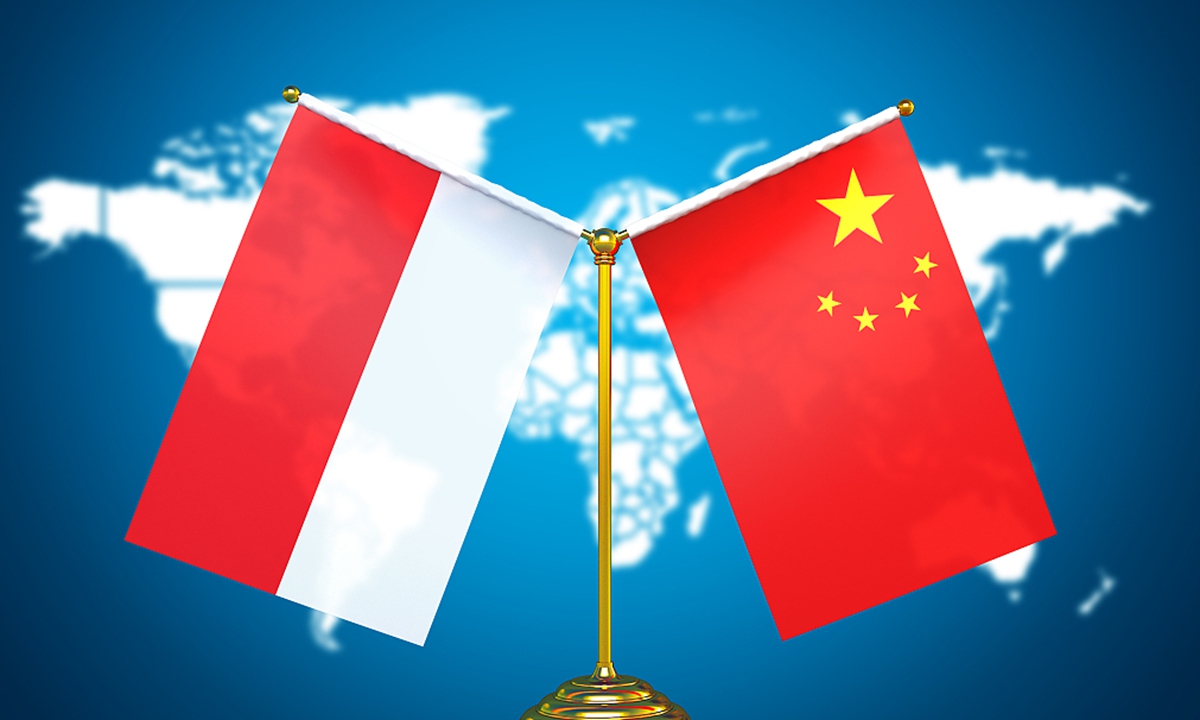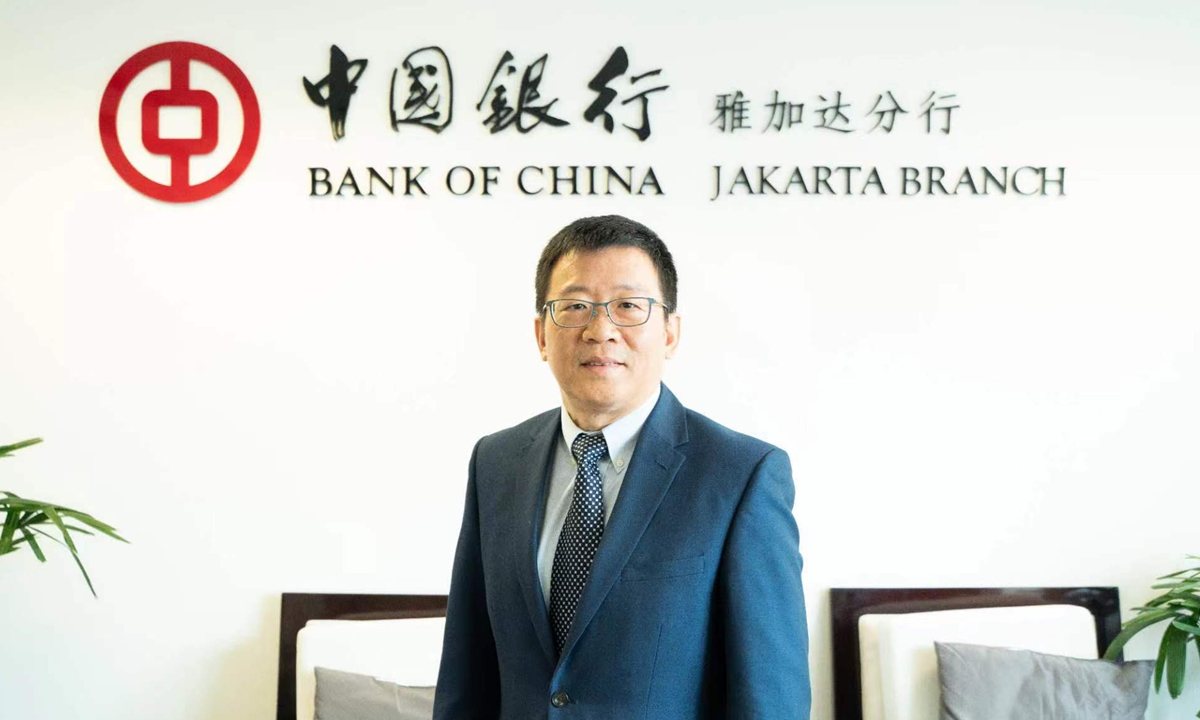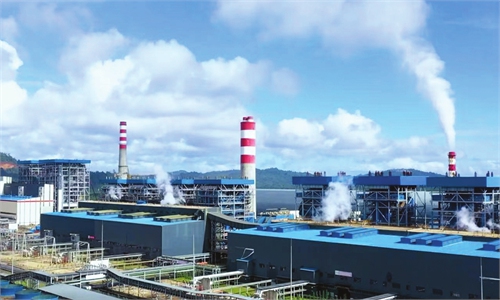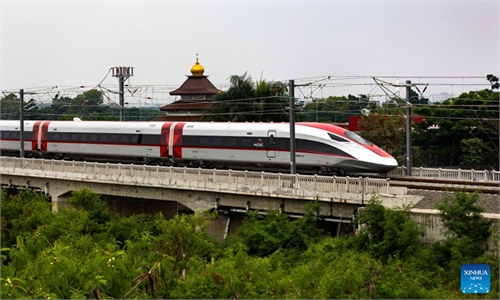
China Indonesia Photo:VCG
China-Indonesia economic cooperation has maintained robust growth in recent years. More than 1,000 Chinese companies have invested in Indonesia, contributing to local industrial upgrade by introducing advanced technologies, offering financial support and cultivating local talent, Zhang Chaoyang, chairman of the China Chamber of Commerce in Indonesia, who is also the manager of Bank of China Jakarta Branch, told the Global Times.
China has been Indonesia's largest trade partner for nine consecutive years and it was one of Indonesia's top three foreign direct investment (FDI) sources for the third straight year. In the first half of the year, Chinese FDI to Indonesia jumped 116 percent to $3.63 billion, Zhang said.

Zhang Chaoyang, chairman of the China Chamber of Commerce in Indonesia Photo: Courtesy of China Chamber of Commerce in Indonesia
Chinese investment covers a wide range of sectors including agriculture, energy, finance and manufacturing, and it's distributed in almost every major island of Indonesia.
For instance, Chinese companies have established industrial parks including Qingshan Industrial Park and Virtue Dragon Nickel Industry Park in Indonesia, helping the country become the world's largest nickel producer and the second-largest stainless steel manufacturer.
SAIC General Motors Wuling Motor Indonesia has strongly supported the Indonesia Industry 4.0 Roadmap by launching its first new-energy vehicle in Indonesia and mass producing it at its West Java facility. Chinese companies including PT Huawei Tech Investment Indonesia and China Mobile cooperate with local telecom carriers in building "Digital Indonesia," he said.
More importantly, the smooth construction of the Jakarta-Bandung High-speed Railway, a landmark among the China-proposed Belt and Road Initiative railway projects, is expected to greatly facilitate connectivity within ASEAN, and boost the Indonesian business community's trust in Chinese technologies.
"As an agent for providing loans for the mega project, Bank of China Jakarta Branch offers strong financial support by handling over 1,000 transactions including deposit withdrawals, remittances and exchange settlements," Zhang said, noting that the bank's services have enabled tens of thousands of construction workers leave their worries behind and focus on the project.
During Indonesian President Joko Widodo's visit to Beijing in July, the two countries released a joint statement, expressing commitment to the completion of the Jakarta-Bandung High-speed Railway on schedule as a flagship project, and to work on more strategic projects such as the Regional Comprehensive Economic Corridor and the "Two Countries, Twin Parks."
They are also speeding up the formulation of a new Five-Year Action Plan for the Implementation of the Comprehensive Strategic Partnership between China and Indonesia (2022-26), vowing to increase bilateral trade and expand cooperation in agriculture, health, food security, digital economy and other areas.
"This provides the direction for the chamber and Chinese enterprises to actively take part in business activities and exchanges for the building of the China-Indonesia community with a shared future," Zhang said, noting that the "sky is the limit for China-Indonesia economic and trade cooperation."
From January to August, bilateral trade reached $95.76 billion, up 28.9 percent year-on-year. Indonesia's trade surplus with China stood at $950 million, which reflects a more healthy trade structure, official data showed.
According to a report released by the chamber on October 28, more than 80 percent of Chinese-funded companies plan to increase investment in Indonesia over the next five years, 95.7 percent of Chinese companies believe that localization of operations is a key factor for successful operation in the market and 81.4 percent of Chinese enterprises plan to hire more workers there.


